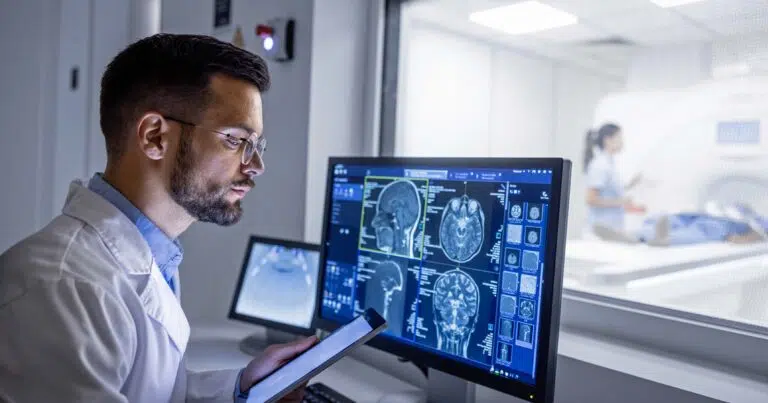EKG Technician Career Guide
Looking for a different career guide?
Overview
EKG Technicians, also known as Electrocardiograph Technicians or Cardiac Monitor Technicians, play a vital role in healthcare by monitoring and recording the electrical activity of patients' hearts. They operate electrocardiogram (EKG or ECG) machines, which are essential in diagnosing heart conditions and providing critical information for medical professionals. EKG Technicians ensure that accurate and clear readings are obtained, contributing to patient care and the assessment of heart health.
Education
To become an EKG Technician, one typically needs a high school diploma or equivalent. While formal education beyond high school may not be mandatory, it can enhance job prospects and provide a more comprehensive understanding of the role. Some community colleges and vocational schools offer EKG Technician certificate programs that can be completed in a few months. These programs cover topics such as anatomy and physiology, cardiac anatomy, EKG equipment operation and interpretation of EKG results.
Qualifications

Skills
Successful EKG Technicians possess a range of skills and competencies. They must have a solid understanding of human anatomy, particularly the cardiovascular system. Proficiency in operating EKG machines and understanding the principles of electrocardiography is crucial. Attention to detail is essential for obtaining accurate readings, as well as documenting and maintaining patient records.
EKG Technicians should have excellent communication skills, as they often interact with patients, explaining procedures and ensuring their comfort. Moreover, they need to work well in a team environment, collaborating with nurses, physicians and other healthcare professionals. Being able to adapt to different healthcare settings and handle high-stress situations is also advantageous.
Responsibilities
The primary responsibility of an EKG Technician is to perform electrocardiograms on patients. This involves attaching electrodes to the patient's chest, limbs and sometimes other body parts and operating the EKG machine to record the electrical activity of the heart. They need to ensure that the readings are clear and accurate.
EKG Technicians also prepare and maintain EKG equipment, calibrate machines and troubleshoot any technical issues. They may assist with stress tests and Holter monitoring, which involves continuous EKG monitoring over an extended period.
In some cases, EKG Technicians may have additional responsibilities, such as patient education, where they explain procedures and alleviate any concerns patients may have.
Salary Insights
The average salary for a EKG Technician is $1,344.34 per week.
Last updated on March 22, 2025. Based on active jobs on Vivian.com.
Pros & Cons
Becoming an EKG Technician offers several advantages. The educational requirements are relatively minimal compared to many healthcare professions, making it accessible for those seeking a quick entry into healthcare. Job opportunities are available in hospitals, clinics, diagnostic labs and outpatient centers, providing a range of work settings. The job can be emotionally rewarding, as EKG Technicians contribute to the diagnosis and treatment of heart conditions, potentially saving lives.
However, there are also challenges to consider. The role may involve standing for extended periods and potentially working irregular hours in settings with high patient volumes. The emotional toll of dealing with patients with serious heart conditions or those in distress can be demanding. Additionally, career advancement options may be limited without additional education and training.
In conclusion, a career as an EKG Technician can be a fulfilling path for individuals interested in healthcare and cardiovascular health. It offers a relatively quick entry into
Some of the content on this page was enhanced using artificial intelligence.
Join over 1 million healthcare workers that are getting a head start with Vivian.
Join Vivian





